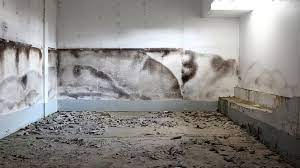Basements are notorious for being damp and prone to mold growth. Mold in basements not only poses health risks but can also affect the structural integrity of the building. In this blog, we will explore the importance of mold cleaning in basements, effective techniques, and preventive measures to ensure a safe and healthy environment. Transition words: Additionally, Furthermore
Understanding the Risks of Mold in Basements
- Health Concerns: Mold spores in the air can cause respiratory issues, allergies, and other health problems, especially in individuals with sensitivities.
- Structural Damage: Mold can deteriorate organic materials, such as wood and drywall, compromising the integrity of the basement structure.
- Spread to Other Areas: Mold growth in basements can easily spread to other parts of the house, affecting indoor air quality and increasing the risk of mold-related issues. Transition words: Moreover, Furthermore
Effective Mold Cleaning Techniques
- Protective Measures: Before starting the cleaning process, wear proper protective gear, such as gloves, goggles, and a respirator, to avoid exposure to mold spores.
- Surface Cleaning: Use a mixture of water and detergent or a commercial mold cleaner to scrub visible mold from surfaces. Rinse with clean water and dry thoroughly.
- Deep Cleaning: For porous materials like concrete or wood, professional cleaning or mold remediation may be necessary to eliminate deeply embedded mold. Transition words: Additionally, Moreover
Preventive Measures for Mold-Free Basements
- Moisture Control: Address any sources of moisture in the basement, such as leaks, condensation, or poor ventilation. Install dehumidifiers or fans to maintain optimal humidity levels.
- Proper Insulation: Insulate basement walls and pipes to prevent condensation and reduce the likelihood of mold growth.
- Adequate Drainage: Ensure proper grading and functioning of gutters, downspouts, and drainage systems to direct water away from the foundation.
Transition words: Furthermore, Additionally
Ventilation and Air Circulation
- Ventilation Systems: Install and properly maintain ventilation systems, such as exhaust fans or vents, to improve air circulation and reduce humidity.
- Air Purification: Use air purifiers or HEPA filters to remove mold spores from the air and improve indoor air quality.
- Regular Inspection: Conduct routine inspections of the basement for signs of moisture, leaks, or mold growth, addressing any issues promptly. Transition words: Moreover, Additionally
Professional Mold Cleaning Services
- When to Seek Professional Help: If the mold growth covers a large area (typically more than 10 square feet), or if the mold is caused by sewage or contaminated water, it is advisable to hire professional mold remediation services.
- Expertise and Equipment: Professional mold cleaners have the knowledge, experience, and specialized equipment to effectively identify and remove mold, ensuring thorough cleaning and preventing future growth.
Transition words: Furthermore, Moreover
Conclusion
Mold cleaning in basements is crucial for safeguarding both the health of occupants and the integrity of the building. By understanding the risks, implementing effective cleaning techniques, and adopting preventive measures, homeowners can create a mold-free basement environment. Regular maintenance, vigilance, and prompt action are key to ensuring a safe, healthy, and mold-free space.

